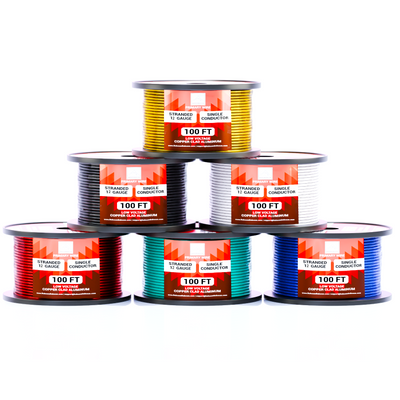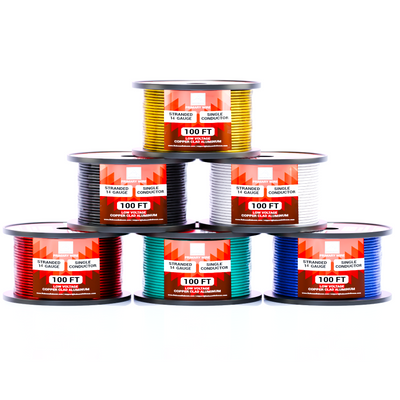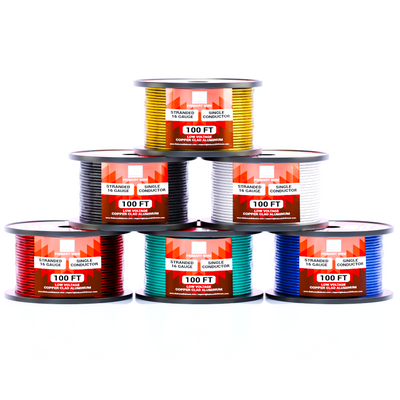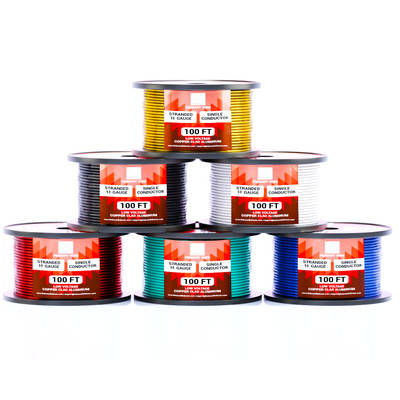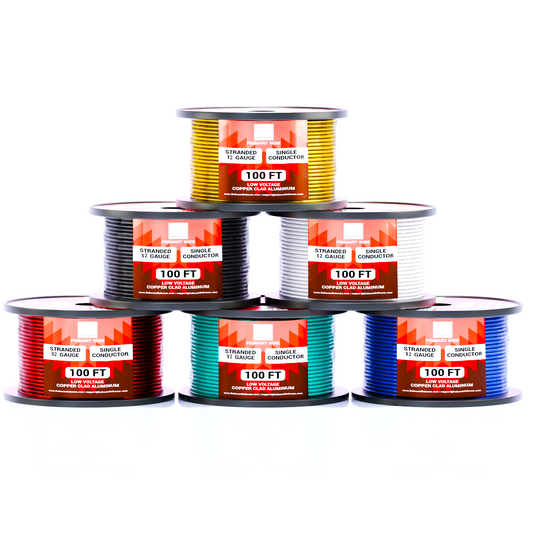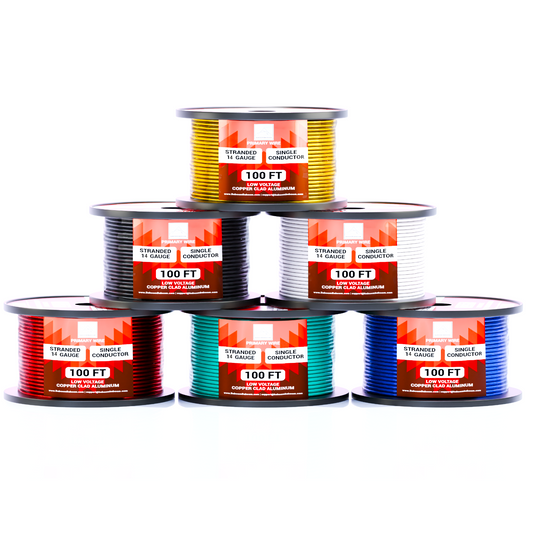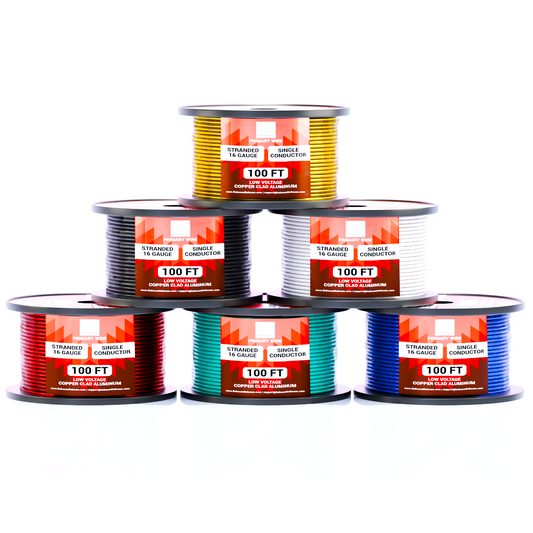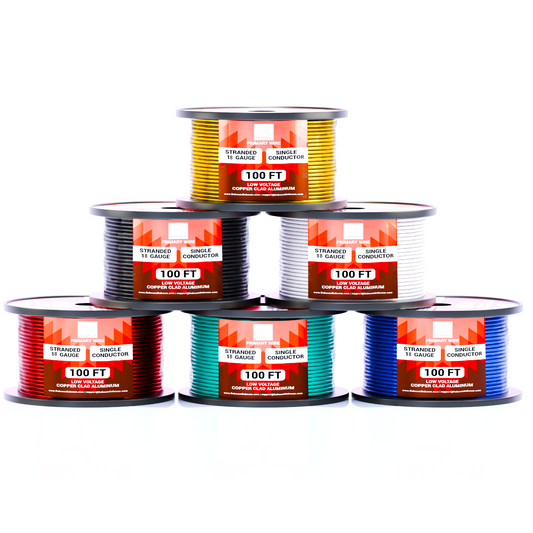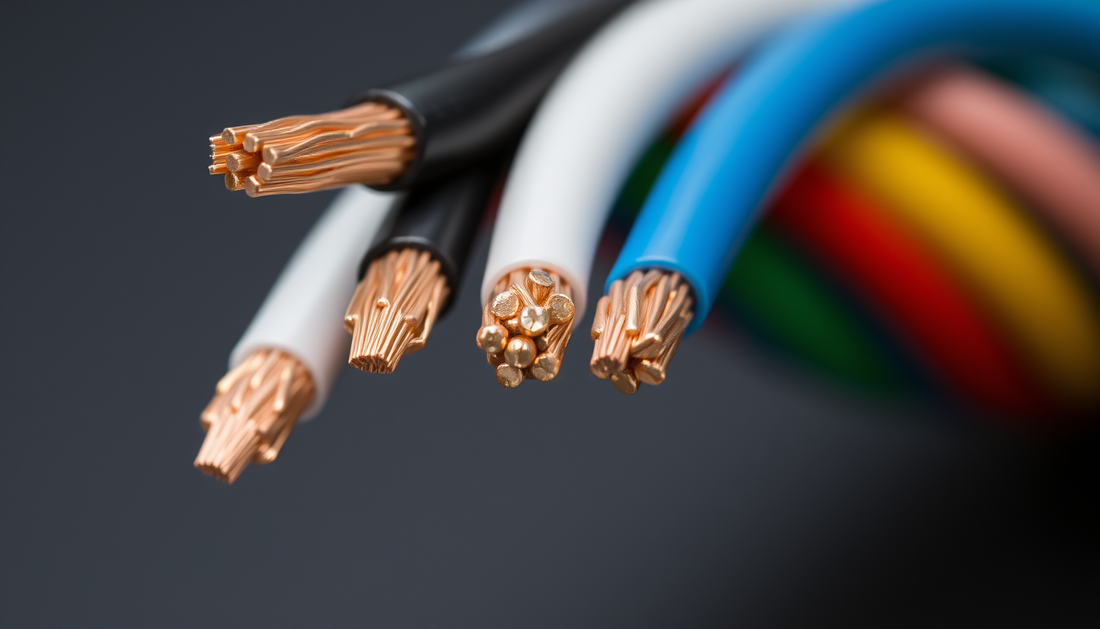
All You Need to Know About 14 Gauge Wire
Share
Introduction
Choosing the right wire gauge is crucial for the safety and efficiency of any electrical project. One of the most commonly used wire gauges is 14 GA (gauge) wire. This blog will cover the key characteristics, common uses, and benefits of 14 GA wire, helping you understand why it might be the perfect choice for your next project.
What is 14 GA Wire?
14 GA wire, also known as 14-gauge wire, refers to a wire with a diameter of approximately 1.63 mm (0.0641 inches). Like other wire gauges, the number indicates the wire's thickness, with a higher number representing a thinner wire. Compared to 12 GA wire, 14 GA is thinner and has a lower current-carrying capacity, but it is still highly versatile and widely used in various applications.
14 GA wire is available in both solid and stranded forms, with common materials being copper and Copper-Clad Aluminum (CCA). Solid wire consists of a single metal conductor, while stranded wire is made up of multiple smaller strands twisted together. Both forms have their specific advantages, depending on the application.

Common Applications of 14 GA Wire
14 GA wire is used in a wide range of electrical projects, particularly in residential settings. Here are some of the most common uses:
Residential Lighting Circuits:
One of the most common uses for 14 GA wire is in residential lighting circuits. It is typically used for 15-amp circuits, which power standard light fixtures and wall outlets. Its ability to handle the current load for typical household lighting makes it a go-to choice for licensed electricians and DIYers alike.Outlet Wiring:
14 GA wire is often used for wiring standard 120-volt outlets in homes. These outlets are typically rated for 15 amps, making 14 GA wire the perfect match for these circuits. This wire gauge is sufficient for powering small appliances, lamps, and other low-power devices.Thermostat Wiring:
In HVAC systems, 14 GA wire is commonly used for connecting thermostats to heating and cooling units. The wire's flexibility and adequate current capacity ensure reliable communication between the thermostat and the HVAC system, allowing for precise temperature control.Doorbell Systems:
Doorbell systems, which typically operate on low voltage, often use 14 GA wire for connections between the doorbell button, chime, and transformer. The wire's size and durability make it well-suited for these low-power applications.Speaker Wiring:
14 GA wire is popular for speaker wiring in home audio systems. It offers a good balance between flexibility and performance, making it ideal for routing through walls or along baseboards. Its thickness is adequate for most home audio setups, providing clear sound quality without significant signal loss.Landscape Lighting:
For outdoor landscape lighting, 14 GA wire is often used to connect low-voltage lights. Its resistance to weather conditions and ability to carry the necessary current make it a reliable choice for illuminating pathways, gardens, and other outdoor areas.

Why Choose 14 GA Wire?
Choosing the right wire gauge depends on your specific needs and the requirements of your project. Here are some reasons why 14 GA wire is often preferred:
Sufficient for 15-Amp Circuits:
14 GA wire is rated for up to 15 amps, making it suitable for most household circuits that power lighting, outlets, and small appliances. It provides a safe and reliable option for standard residential wiring.Flexibility:
Stranded 14 GA wire is flexible and easy to work with, especially when running wires through walls, ceilings, or tight spaces. This flexibility simplifies installation and reduces the risk of wire damage.Cost-Effective:
Compared to thicker wire gauges, 14 GA wire is more affordable, making it a cost-effective choice for many electrical projects. Its lower cost does not compromise safety or performance, making it a popular option for homeowners and professionals.Ease of Use:
14 GA wire is easier to bend, strip, and connect than thicker wires, which can be especially beneficial for DIY projects. Its manageable size makes it easier to work with, particularly in confined spaces.Adequate for Long Runs:
For longer wiring runs in residential settings, 14 GA wire can be used without significant voltage drop, especially when the current load is within its rated capacity. This makes it suitable for wiring large rooms or connecting multiple outlets or lights on a single circuit.

Conclusion
14 GA wire is a versatile and widely used wire gauge that is essential for many electrical projects, particularly in residential settings. Whether you're wiring lighting circuits, outlets, thermostats, or speaker systems, 14 GA wire provides the right balance of current-carrying capacity, flexibility, and ease of use. Its affordability and reliability make it a go-to choice for both professionals and DIY enthusiasts. Understanding the applications and benefits of 14 GA wire will help you make informed decisions for your electrical projects, ensuring safety, efficiency, and long-lasting performance.

